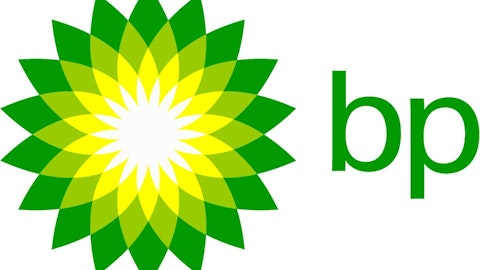Make no mistake about it: The U.S. shale revolution has fundamentally altered the dynamics of the global oil market. Not only has it boosted U.S. crude oil production to its highest level in more than two decades, but it’s also helped reduce U.S. oil imports to their lowest level since 1997.
But the boom in U.S. oil production has other far-reaching consequences, some of them unintended. For instance, it is expected to meaningfully reduce global demand for oil produced by OPEC this year. One member country in particular, has been severely affected: Nigeria. Let’s take a closer look.
A primer on Nigerian oil exports
Nigeria is Africa’s largest oil-producing country and an important member of OPEC. For decades it has counted the U.S. among its largest and most important customers. At its peak, the West African nation exported roughly 1.6 million barrels per day to the U.S., which would account for nearly a fifth of current U.S. oil imports.
But since July 2010, Nigerian exports destined for U.S. hubs have plunged by about half, down from more than 1 million barrels per day to just 543,000 barrels per day last October. Meanwhile, exports from another large African oil-exporting nation, Angola, have also seen a precipitous decline, falling from a 2008 average of 513,000 to less than 200,000 barrels per day currently.
The sharp fall-off in these countries’ exports to the U.S. is due largely to the type of oil they produce — light, sweet crude. Because of the U.S. shale boom, domestic production of light oil has surged. And thanks to shipments via new or expanded pipelines, as well as rail and barge, U.S. refiners are gaining greater access to light oil from plays such as North Dakota’s Bakken and Texas’ Eagle Ford.

Nigerian officials concerned about U.S. shale boom
At a February conference in Abuja, the nation’s capital city, government officials addressed soaring U.S. oil production and the imminent threat it poses to the nation’s export economy. “Shale oil and the increase in their gas production is already affecting our exports to the United States,” said Alison Madueke, the Nigerian oil minister.
As a result, Nigeria’s government slashed its production target for 2013, from an initial 2.5 million barrels per day to around 2 million barrels per day, as the nation repositions and tries to find alternative export markets. So far, however, it has been met with limited success, at times forcing it to reduce prices for its crude.
In January, for instance, it was forced to sell cargoes of Qua Iboe crude, one of its benchmark grades, at nearly $0.40 a barrel below the official price, according to analysts at Ecobank. While that may sound paltry, it means the country would lose $380,000 on a typical cargo, according to calculations by The Wall Street Journal.
Oil theft, vandalism, and other issues
In addition, Nigeria has been plagued by attacks on oil infrastructure in the Niger Delta. According to the nation’s Petroleum and Natural Gas Senior Staff Association, Nigeria loses an estimated $6 billion annually to crude oil theft. Passing new regulations to overhaul the nation’s domestic oil industry, such as tax rate, environmental, and structural reforms, has proved difficult.
The oil theft problem is so grave, in fact, that Italian oil major Eni was forced to suspend its drilling program in southern Nigeria’s Bayelsa state. Of the roughly 40,000 barrels of oil per day Eni was pumping out from the site, approximately 60% was lost to theft, leading the company to conclude that its activities in the region were “no longer sustainable.”
Some companies — overwhelmed by the oil thefts, spills, and vandalism that have become commonplace in Nigeria — have retrenched from their operations in the country, either partially or entirely. For instance, in November, French oil major Total agreed to sell a 20% stake in an offshore Nigerian oil field to Chinese oil giant China Petroleum & Chemical Corp (ADR) (NYSE:SNP), also known as Sinopec, for roughly $2.5 billion. Shortly thereafter, in December, ConocoPhillips (NYSE:COP) backed out of its operations in the country, selling its Nigeria unit to Toronto-listed Oando Energy Resources for about $1.79 billion in cash.
The way forward for Nigeria
One way out for Nigeria is to implement new regulations governing its oil and gas industry that would encourage foreign investment, while ensuring that its citizens also reap some of the benefits of said investment. For years, the nation has planned a thorough overhaul of its oil industry, ranging from tax rate reform to new environmental regulations to altering the structure of its state-owned oil company, yet little has been accomplished.
Finally, however, it looks like something is being done. A new bill — the Petroleum Industry Bill — is currently under discussion in the nation’s parliament, though reaching consensus has so far proved very difficult. The bill aims to create new regulatory institutions, amend upstream contractual arrangements, implement a new fiscal regime to promote outside investment while boosting government revenues, deregulate refining, and foster a general sense of transparency in the industry’s dealings.
Some have applauded the bill as a long overdue attempt to correct the glaring inefficiencies in the nation’s oil and gas industry. But others have chastised it, arguing that it will result in an evaporation of foreign investment in the country. Mark Ward, head of Exxon Mobil Corporation (NYSE:XOM)‘s Nigerian unit, said that if the bill is passed, it would make Nigeria one of the harshest investment climates in the world for the oil industry.



